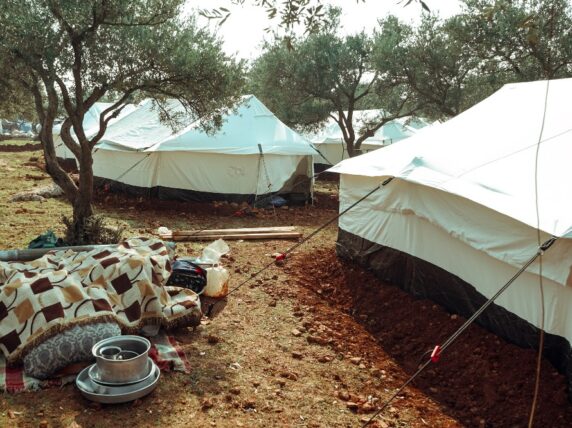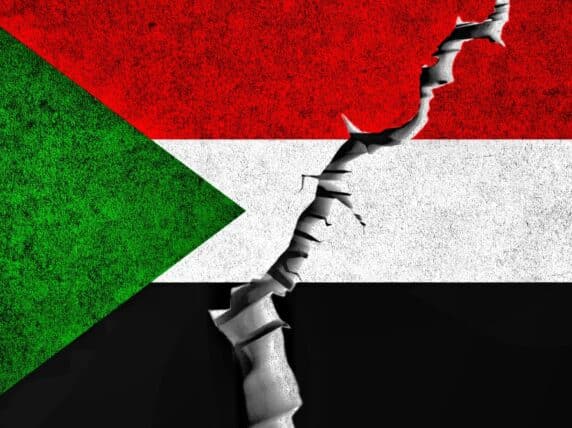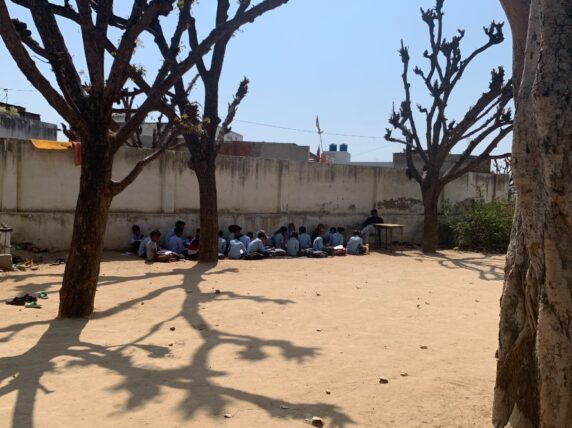Programmes at risk as more NGOs face closure
More NGOs face cuts and closures as the volatile Covid-19 crisis continues. Our latest survey shows that 50 out of 116 organisations won’t survive longer than six months without additional funding.
This is an increase from 34 NGOs who said they faced closure after six months in our previous survey in late March. We surveyed our members again in late April to get more information on the repercussions of Covid-19 on international NGOs’ finances and operations.
NGOs are doing what they can to continue supporting the world’s most vulnerable people. But as financial pressures increase, 53% of respondents said that they have already or are planning on cutting programmes.
Here are the key findings from our survey of 116 CEOs of Bond members (representing over a quarter of our membership), ranging from small to large organisations.
More NGOs face closure in the next six months
43% of respondents said that their organisations will fold within six months unless they receive additional funding from other sources, whether public fundraising, institutional donors or the UK government. CAF’s latest survey shows that only 13% of British people are likely to donate to international charities, compared to 28% who are likely to donate to national charities and 48% who would donate to local charities.
DFID is providing some flexibility to those who already hold grants or contracts to help them cope with the effects of the virus on their programmes, although further clarification is needed. Only a quarter of Bond’s members receive direct funding from DFID currently.
This all depends on the attitudes of the institutional donors, particularly UK, EU and US. If they remain committed to international development, we’ll be fine, if not, we won’t.
small organisation
We have seen some funders who previously funded both UK and overseas projects now accepting applications for UK projects only. And other funders delaying funding rounds or taking a short-sighted approach and not funding projects because of the current uncertainties.
small organisation
Programmes still being scaled back
53% of respondents have already or are planning on cutting back programmes overseas.
All programmes in country which require community work have been suspended and programmes funded from unrestricted funding have all had to be cancelled.
medium NGO
We estimate having to cut our overseas programmes expenditure by at least 20% and are working with our partners to cut budgets, at a time when they need more funding to respond to Covid-19.
medium NGO
More cuts to staff costs
NGOs are resorting to a range of measures to reduce their staffing costs, further hampering operations. 10% of respondents reported that their organisation has made redundancies. 28% said their organisations have asked staff to take temporary pay reductions and 58% have frozen recruitment.
Subscribe to our newsletter
Our weekly email newsletter, Network News, is an indispensable weekly digest of the latest updates on funding, jobs, resources, news and learning opportunities in the international development sector.
Get Network News54% of Bond members who took part in the survey have furloughed staff, which means 2,082 people aren’t working on delivering their organisations’ missions. If this finding is replicated throughout the Bond membership and not just with survey respondents, then approximately 8,000 staff are currently not working.
Because the government has excluded most charities from the loan scheme, and because there [is] no support to overseas charities beyond the furlough scheme, once furlough support ends we will struggle to take everyone back because our fundraising will not recover instantly once furlough support is withdrawn. And we can’t access a loan to smooth this gap out with cashflow support.
medium organisation
Small charities are being hit hardest
Our survey suggests small NGOs are disproportionately affected. Of the 40 organisations who will fold within six months without additional funding, 25 are small organisations (income under £2million) and 17 are medium organisations (income of £2million to £20million). Of the 61 organisations who are cutting programmes, 42% are small and 37% are medium-sized.
We have lost all of this year’s unrestricted funding, and as a small organisation with small levels of reserves we can’t take such a hit. It poses an existential threat.
small organisation
Of the 12 charities who are already making redundancies, seven are small and five are medium organisations, while none are large organisations (over £20million income).
The reduction of income this year will lead to depleted reserves, which will curtail our planned activities next year. 70% of our unrestricted income is also linked to fundraising events, which we predict will have a lower return for the next 18 months at least, if they happen at all.
small organisation
Long term effects on finances
The ramifications of the current crisis will continue for years to come for most NGOs. Only 28% of organisations said its effects will be limited to this financial year.
70% said the pandemic will continue to impact their organisational finances beyond this financial year, or will only start to affect them in the following financial year (2021/22).
Based on the previous financial crises we believe that the economy will not recover to pre-coronavirus levels until 2023. This will restrict our donors’ ability to contribute to charitable activities.
large organisation
The timing of the pandemic is particularly difficult for faith-based organisations, who do a lot of their fundraising around Lent and Ramadan.
More than 50% funds come during this month of Ramadan. Due to lockdown more than 70% of our normal fundraising campaigns in this period have been cancelled. Therefore, it will have a huge knock on effect on our overall budget for this year and beyond.
medium organisation
How are we supporting the sector?
We’re engaging with UK government to help NGOs survive financially. We’re connecting with NCVO, the Institute of Fundraising, ACEVO, the Charity Finance Group and others to push for government support to charities. We’re also liaising regularly with DFID to advocate for flexible funding to enable international NGOs to adapt their programmes to respond to the crisis.
We’re also providing support and information for enduring the crisis and advocating for an effective global response. Find out more.
Category
News & views



